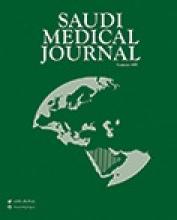13 JUNE 2016 | GENEVA - Voluntary, unpaid blood donations must be increased rapidly in more than half the world’s countries in order to ensure a reliable supply of safe blood for patients whose lives depend on it, WHO said on World Blood Donor Day.
This year, the theme of World Blood Donor Day is “Blood connects us all”, highlighting the common bond that all people share in their blood. The slogan, “Share life, give blood”, draws attention to the role that voluntary donation systems play in encouraging people to care for one another and promoting community cohesion.
“Although we have many external differences, the same vital blood pumps through all our veins,” said Dr Margaret Chan, WHO Director-General. “Voluntary, unpaid blood donation is the act of giving life – the greatest gift any person can give or receive.”
About 108 million blood donations are collected globally every year. Nearly 50% of these blood donations are collected in high-income countries, home to less than 20% of the world’s population. The average blood donation rate is more than 9 times greater in high-income countries than in low-income countries.
However, in many countries, demand exceeds supply, and blood services face the challenge of making sufficient blood available, while also ensuring its quality and safety. An adequate supply can only be assured through regular donations by voluntary, unpaid blood donors.
Regular voluntary unpaid blood donors are the foundation of a safe blood supply because they are associated with low levels of infection that can be transmitted by transfusions, including HIV and hepatitis viruses. Around the world, 25 countries are unable to screen all donated blood for one or more of these infections due to irregular supply of test kits, staff shortages, poor quality test kits, or lack of basic quality in laboratories.
WHO encourages all countries to establish blood services based on full voluntary non-remunerated blood donations. Today, only 62 countries get close to 100% of their national blood supplies from voluntary unpaid blood donations, with 34 countries still dependent on family donors and even paid donors for more than 75% of their blood supply.
Blood can be used whole, or separated into its component parts, such as red blood cells, platelets, plasma, and other “substances” that can be used to treat a wide range of diseases. A single unit of blood can be used to benefit several patients.
Transfusions of blood and blood products helps save millions of lives every year, including during emergencies such as conflicts, natural disasters, and childbirth. It can help patients suffering from life-threatening conditions live longer and with higher quality of life, and supports complex medical and surgical procedures.
“Voluntary blood donors come from all walks of life but they have one thing in common: they put others before themselves — people they don’t even know,” said Dr Ed Kelley, Director of the Department of Service Delivery and Safety at WHO. “Each time they donate blood, they commit an act of selfless heroism.”
World Blood Donor Day has been celebrated annually since 2004, with the aim of improving the safety and adequacy of national blood supplies by promoting a substantial increase in the number of safe, voluntary, unpaid donors who give blood regularly.
This year, the host country for World Blood Donor Day is Netherlands, through Sanquin, the national blood supply organization. The global event will take place on 14 June 2016 in Amsterdam, attended by His Majesty King Willem-Alexander.
Available from: http://www.who.int/entity/mediacentre/news/releases/2016/world-blood-donor-day/en/index.html
- Copyright: © Saudi Medical Journal
This is an open-access article distributed under the terms of the Creative Commons Attribution-Noncommercial-Share Alike 3.0 Unported, which permits unrestricted use, distribution, and reproduction in any medium, provided the original work is properly cited.






